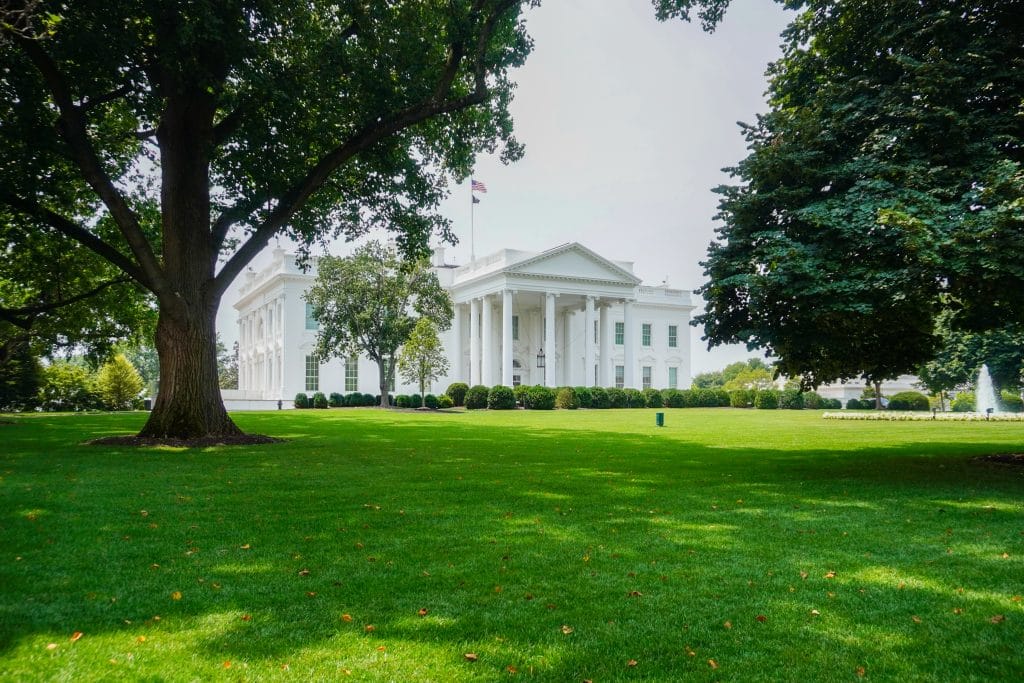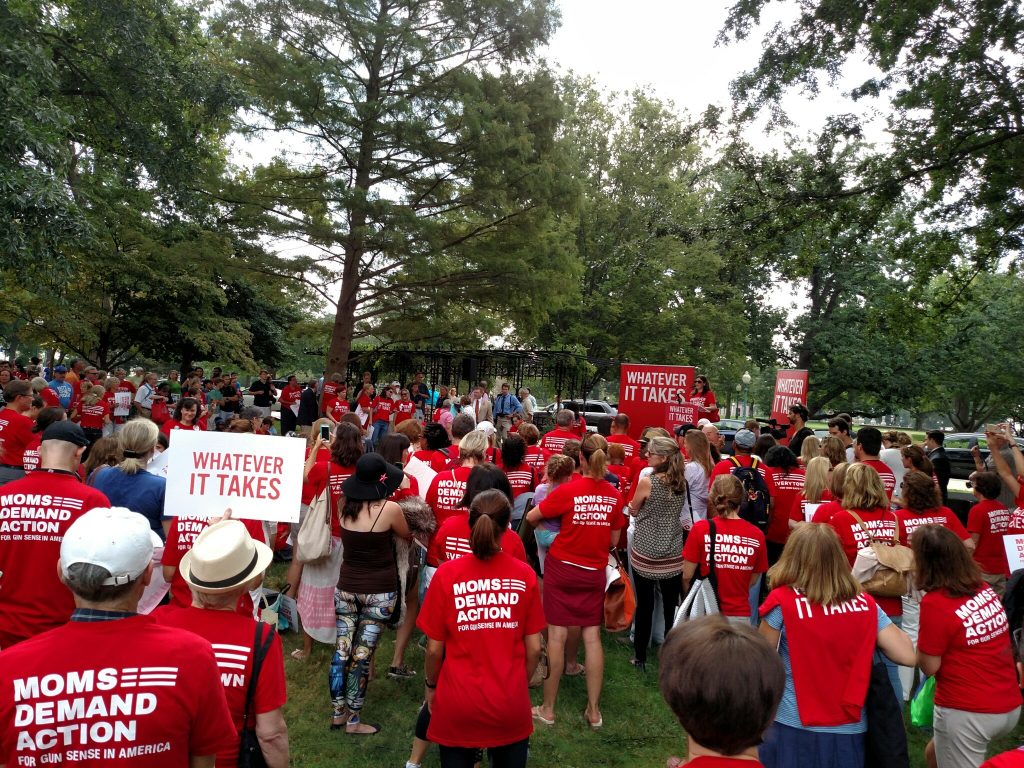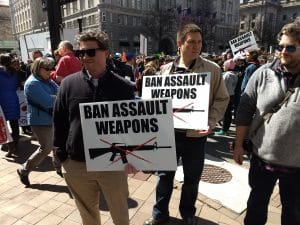Honestly, this week started off fairly slow. I was wondering if we’d have enough good stories to fill out the week. Then the flood gates opened when President Biden decided to officially abandon his ATF director nominee.
The move came just a few weeks after the second of two major exclusive stories on that nominee’s history, which raised serious character questions. Most in major media ignored the revelations and accusations but they had a significant effect on Capitol Hill where members of the Senate Judiciary Committee sent dueling letters over the stories. Minority Leader Mitch McConnell took to the Senate Floor and called for the nominee to be withdrawn based on The Reload‘s reporting.
Major media outlets were unwilling or unable to break those stories. The Reload was capable of and unafraid to scrutinize the man seeking one of the highest positions in our government. And the facts we uncovered had a real impact.
That’s why I founded this publication. That’s what we’re built to do. And there’s no way we could do it without the support of you because The Reload is still entirely funded by the members.
But, now that the president has pulled the nomination, what comes next?

Analysis: What Will Biden Do With the ATF Director Position Now? [Member Exclusive]
President Joe Biden was dealt a serious political setback on Thursday when he withdrew his pick to head the ATF.
That leaves the administration’s executive branch gun-control push without its planned shepherd. And it leaves the gun-control groups that have staunchly backed Biden without one of their own in a key administrative position at a time when their hopes for passing legislation are at an all-time low. So, what comes next?
The president could choose to nominate somebody else immediately, or he could decide to hold off until after the midterm elections. He could try to nominate a less-controversial candidate, or he could try to find another gun-control activist with less baggage to fill the role.
The nomination of David Chipman, a former ATF agent, and gun-control activist, faced immediate opposition from gun-rights advocates and industry representatives alike. After a contentious confirmation hearing, he remained in limbo, but the White House and gun-control advocates alike believed they could convince Democratic holdouts. As the months dragged on, though, damaging stories about Chipman’s past emerged.
The Reload found current and former ATF agents in July who corroborated the existence of a claim Chipman made racist remarks implying black agents cheated to gain promotions. That prompted Republicans on the Senate Judiciary Committee to call for a new hearing and Senate Minority Leader Mitch McConnell (R., Ky.) to call for Chipman’s withdraw. Chairman Dick Durbin (D., Ill) refused and instead attacked The Reload as an “extreme anti-gun safety website.”
In August, a black former ATF agent told The Reload Chipman accused him of cheating on a promotion assessment and said he believed the incident was racially-motivated. The story caused Senator Chuck Grassley (R., Iowa) to initiate an investigation that resulted in a whistleblower report. Grassley is still seeking the release of the complaints filed against Chipman and the report on the investigation his allegation against the black agent initiated.
With Chipman now out of the running, there is no clear path forward for the White House in the short term.
It’s possible the White House withdrew his nomination after making a deal with moderate Democrats who were on the fence about his nomination. Perhaps they’ve already agreed on a potential replacement. A source with knowledge of the situation told me Senator Angus King (I., Maine) suggested current acting director Marvin Richardson or former acting director Tom Brandon as potential nominees.
Even then, though, it’s difficult to see how they could get a nomination through before the end of the year. The process will take several weeks of legislative work, even if they can get solid commitments to vote yes from all 50 of the Senators in the Democratic Caucus. You’d have to go through the background process, the formal nomination process, the confirmation hearings, the votes to move the nominee to the floor, and the procedural votes to get to the final floor vote.
That all takes a lot of time, even without the inevitable opposition Republicans will present to any nominee Biden does put up.
And the question becomes: would it be worth it? It would be an election year by the time you could get a nominee pushed through the procedural hurdles. That will make moderate Democrats even warier about voting on a contentious issue like guns.
Is getting a career ATF official as the confirmed head, instead of just an acting head, worth that kind of fight? Richardson and Brandon aren’t Chipman. They aren’t committed gun-control activists with strong backing from the gun-control groups that are part of the President’s base. Getting either of them confirmed may be possible, but it would also provide little political upside to the president.
So, it seems the best move left for the President is to wait for the midterms to pass and hope his party can retain control of the Senate. Then, perhaps, he can try to put a different nominee favored by the gun-control groups at the head of the agency. But that would likely require either Democrats actually picking up seats to make the vote easier or the White House finding a candidate less offensive to gun-rights advocates but equally appealing to gun-control advocates.
It’s not likely the President’s party will pick up seats, and I’m not sure a candidate like that exists in reality. It’s fair to wonder at this point if Biden’s opportunity to appoint an ATF director during his first term is now gone. And, of course, there’s no guarantee he’ll get a second term to regain the opportunity.

Podcast: VCDL’s Philip Van Cleave on the Upcoming Virginia Elections [Member Early Access]
By Stephen Gutowski
On this episode, Virginia Citizen Defense League’s (VCDL) president Philip Van Cleave joins the show to discuss his group’s defamation suit against the Coalition to Stop Gun Violence (CSGV).
He talks about why the group feels CSGV falsely labeling them a “domestic terror organization” is actionable and why VCDL believes it can reach the high bar to win a defamation case. He also discusses the upcoming elections in Virginia, what VCDL is doing to elect pro-gun candidates, and why they haven’t endorsed Republican gubernatorial candidate Glenn Younkin.
I also talk to contributing writer Jake Fogleman about President Biden’s decision to withdraw his ATF nominee after a series of exclusive reports from The Reload uncovered his questionable background.
Plus, I interview Reload Member John Mcadams about what got him into big game hunting and how the pandemic has driven new people to hunting.
You can listen to the full podcast on your favorite podcasting app or by clicking here.
You can also watch the video podcast on our YouTube channel.
If you’d like to be featured on an upcoming episode of the podcast, just let me know!

Analysis: How the Word ‘Loophole’ is Used to Obfuscate Discussions of Gun Policy [Member Exclusive]
If you’ve been following gun politics for any length of time, you’ve inevitably come across the term “loophole” used in association with any number of gun control proposals.
The urgency with which politicians and activists call for bills to close “the gun-show loophole” or “the Charleston loophole” is predicated on the idea that a given practice or behavior with firearms could only be legal due to some oversight by legislators. It implies an inadequacy within a given law, allowing unsavory individuals to obtain guns when they wouldn’t otherwise be able to.
But many of the so-called loopholes decried as oversights needing to be remedied were in fact deliberately left legal, often for practical reasons.
Take for instance the infamous “gun-show loophole” claim. This has perhaps been the most widely touted loophole supposedly in need of closing, and it is often coupled with calls for universal background checks. In an address earlier this year where he announced a series of executive orders related to gun control, President Biden made a statement that captured the essence of the misdirection involved in discussions of this so-called loophole.
“Most people don’t know, you walk into a store and you buy a gun, you have a background check. But you go to a gun show, you can buy whatever you want and no background check,” he said.
This is simply not true. You cannot “buy whatever you want” at a gun show with no background check. Firearms transactions at gun shows are subject to the same federal laws that govern such transactions in any other location. That is to say that a purchase from a licensed dealer at a gun show requires a check run through the FBI’s National Instant Criminal Background Check System (NICS), while transactions between two unlicensed private individuals may be conducted without a check so long as the seller has no reason to believe the purchaser is prohibited from owning a firearm.
This can vary from state to state, as some states require private sales to be conducted with NICS checks, but the federal baseline remains the same throughout the country. Reasonable minds can differ on the desirability of such a scheme, but attempting to conflate an intentional provision in federal regulation with a so-called loophole centered around gun shows is political sleight of hand.
Likewise, the “Charleston loophole” is another common refrain from supporters of gun control that refers to a perceived oversight in the law. Under federal law, a gun sale can proceed after three business days if a NICS check has not yet been returned with an affirmative denial. The so-called loophole gets its name from Dylann Roof— the murderer and prohibited possessor in Charleston, South Carolina— who purportedly obtained his gun under this rule.
Proponents of “closing” the so-called Charleston loophole claim that had Roof been forced to wait for the results of his background check before completing his purchase, his pending charges for drug possession would have prevented him from ever possessing a firearm.
The unlawful use or possession of a controlled substance is indeed a disqualifying offense for gun ownership, but what this claim fails to account for is the fact that it was bureaucratic incompetence that allowed Roof to purchase a gun, not the three-day requirement under federal law. An FBI investigator contacted the wrong locality for details about his pending charge but was unable to find his disqualifying record due to the mistake.
Additionally, a mechanism has always existed to recover guns sold to prohibited possessors before their background checks clear. In those cases, the FBI can notify the ATF about the sale and they can dispatch agents to retrieve the gun.
The three-day provision was intentionally included in federal law to protect the Second Amendment rights of individuals seeking to purchase a gun from being delayed due to intentional malfeasance or bureaucratic inefficiency. The utility of such a provision can be seen in past reporting done by The Reload, where gatekeepers of the right to keep and bear arms have been sued for delayed processes.
These are just two of the most commonly espoused gun policy “loopholes”, but gun-control proponents have referred to numerous intentional provisions as such. While the wisdom of these provisions within the law can be debated by people in good faith, conflating them with mistaken oversights in the law simply clouds substantive discussions at best, and is deliberately misleading at worst.
That’s it for now.
I’ll talk to you all again soon.
Thanks,
Stephen Gutowski
Founder
The Reload






